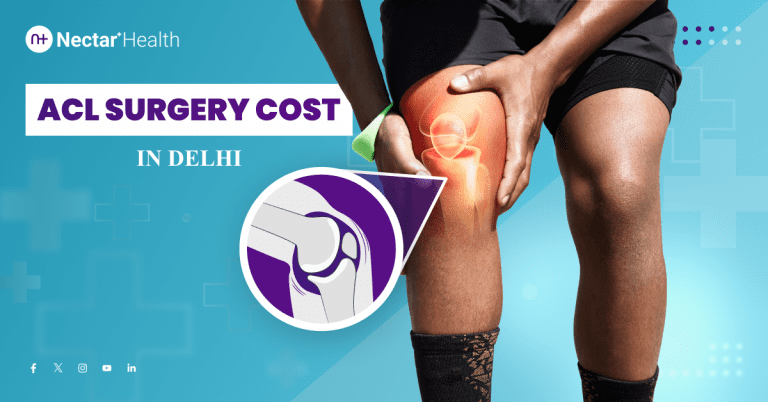The cost of ACL (Anterior Cruciate Ligament) reconstruction surgery in Delhi, like many other medical procedures, is influenced by a multitude of factors. It’s essential to delve deep into these factors to understand the variation in costs and make informed decisions.
Introduction
The ACL is one of the four major ligaments in the knee and is pivotal in stabilizing the knee joint. An ACL injury often requires surgical intervention, especially for those engaged in sports or physically demanding activities.
Hospital Type:
a. Government Hospitals: These are the most cost-effective. With a primary mission of serving the public, government-run hospitals might offer the surgery at significantly lower costs. Sometimes, they even provide the surgery for free or at nominal charges, especially for citizens in the Below Poverty Line (BPL) category. The downside could be longer waiting periods and potentially less personalized care.
b. Private Hospitals: Private hospitals, especially the high-end ones, tend to charge more. The increased costs are due to a combination of factors like advanced technology, better infrastructure, and superior post-operative care.
Surgeon’s Expertise:
The experience and reputation of the surgeon play a vital role. A renowned surgeon with a track record of successful surgeries and fewer complications might charge a premium. Their expertise can lead to quicker recovery and reduced post-operative complications.
Technique Employed:
a. Traditional Open Surgery: This is the conventional method and might be less expensive than newer techniques.
b. Arthroscopic ACL Reconstruction: A minimally invasive technique using small incisions. It offers benefits like reduced pain, faster recovery, and minimal scarring but can be pricier due to the specialized equipment and skills required.
Type of Graft:
The graft used for reconstruction can be from the patient (autograft) or from a donor (allograft).
a. Autografts: Common sources are the patellar tendon or the hamstring tendon. The costs here are bundled with the surgery.
b. Allografts: These might increase the cost as they come from tissue banks and carry processing costs.
Pre-operative and Post-operative Care:
The comprehensive care package might include physiotherapy, regular follow-ups, and rehabilitation programs. These play a crucial role in determining the overall cost. Dedicated rehab programs with advanced equipment or prolonged physiotherapy sessions might raise the expenses.
Duration of Hospital Stay:
An extended hospital stay, possibly due to complications or comorbid conditions, will escalate the costs.
Medications:
Post-operative medications, including painkillers, antibiotics, and anti-inflammatory drugs, contribute to the overall expense. The type, duration, and brand of medication can influence costs.
Additional Investigations:
Sometimes, complications or the need for a clearer diagnosis necessitates additional tests like MRIs, X-Rays, or CT scans. These tests, while essential, can add to the financial burden.
Miscellaneous Factors:
a. Medical Insurance: Those with comprehensive medical insurance might find their costs significantly reduced, depending on the terms of their policy.
b. Geographical Location: Within Delhi, the location of the hospital can play a role. Hospitals in upscale localities might charge more than those in suburban or less developed areas.
c. Hospital Amenities: Facilities like single private rooms, air conditioning, personalized nursing care, gourmet food, etc., provided by some high-end hospitals, can push the cost higher.
Estimated Cost:
While it’s challenging to pinpoint an exact cost due to the aforementioned factors, as of 2022, the price might range from INR 40,000 in government hospitals to INR 2,00,000 or more in premium private hospitals. It’s essential to note that these are ballpark figures and can vary.
Conclusion:
When considering ACL reconstruction surgery in Delhi, patients must research and possibly consult with multiple hospitals and surgeons. This will not only help in understanding the procedure better but also in making an informed financial decision. While cost is an essential factor, the quality of care, the expertise of the medical team, and the post-surgery outcomes should be paramount. Always prioritize health and safety over cost.










